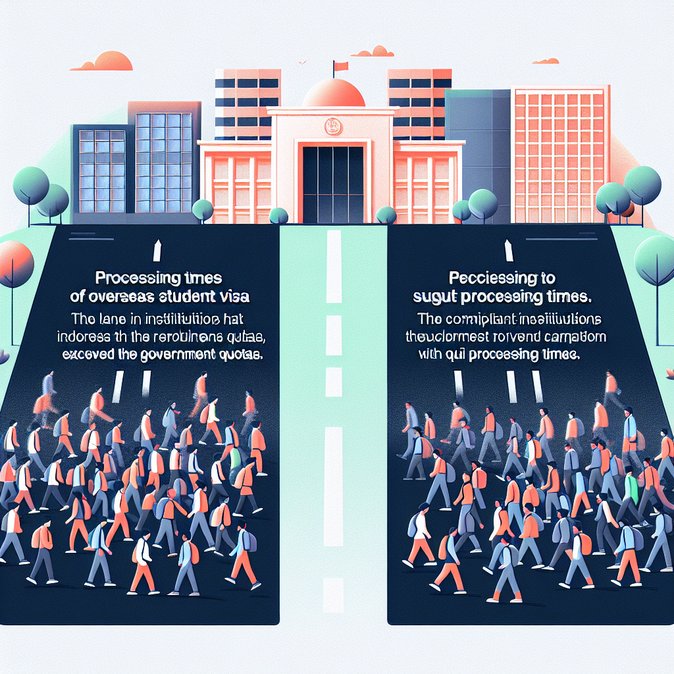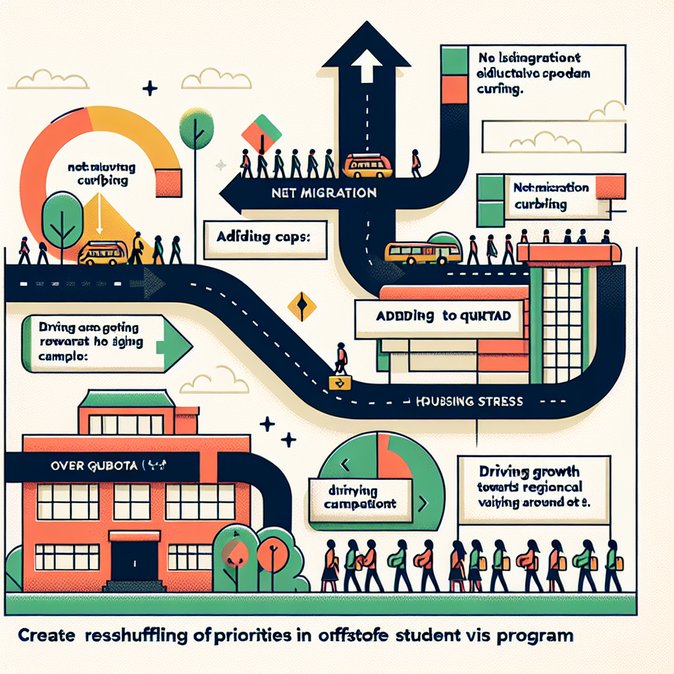
Australia’s Department of Home Affairs has switched on Ministerial Direction 115 (MD 115), a legally-binding order that rewires how every offshore Student visa (subclass 500) application is queued and decided. Effective 14 November 2025, MD 115 replaces last year’s ‘managed-growth’ framework and locks providers into a three-tier “traffic-light” system the moment an application is lodged.
Tier 1—covering schools, English-language colleges, government-funded TAFE providers, postgraduate research and DFAT-sponsored students—will continue to receive decisions in as little as one to four weeks. Tier 2 now applies only to higher-education and VET institutions using less than 80 per cent of their 2026 planning allocation, with processing targets of five to eight weeks. Providers that have overshot their allocation by 15 per cent or more are relegated to Tier 3, facing waits of nine to 12 weeks. Crucially, an applicant’s tier is ‘snapshot-based’—it cannot be upgraded if the provider later falls back into compliance.
![Home Affairs activates Ministerial Direction 115, tightening offshore student-visa processing]()
Home Affairs released data alongside the directive showing a 26 per cent drop in offshore student-visa lodgements for the first ten months of 2025 and a 16 per cent fall in commencements. Canberra argues that slower, more selective growth will relieve pressure on urban rental markets while nudging international students towards regional campuses that still enjoy Tier 1 priority.
For universities and pathway colleges, MD 115 imposes powerful new incentives to stay within allocation. Institutions that over-enrol risk months-long delays for future cohorts, eroding their competitiveness. Education agents are already advising students—particularly from India, China and Nepal—to verify an institution’s tier before paying deposits. Employers relocating staff families on study visas should build additional lead-time into assignment schedules for the January 2026 intake.
Corporate mobility managers should also note the ripple effects: longer student-visa queues may lengthen dependent-visa processing and complicate dual-career moves. Multinationals may need to increase housing support as rental markets adjust and consider alternative regional campuses when structuring education allowances.
Tier 1—covering schools, English-language colleges, government-funded TAFE providers, postgraduate research and DFAT-sponsored students—will continue to receive decisions in as little as one to four weeks. Tier 2 now applies only to higher-education and VET institutions using less than 80 per cent of their 2026 planning allocation, with processing targets of five to eight weeks. Providers that have overshot their allocation by 15 per cent or more are relegated to Tier 3, facing waits of nine to 12 weeks. Crucially, an applicant’s tier is ‘snapshot-based’—it cannot be upgraded if the provider later falls back into compliance.

Home Affairs released data alongside the directive showing a 26 per cent drop in offshore student-visa lodgements for the first ten months of 2025 and a 16 per cent fall in commencements. Canberra argues that slower, more selective growth will relieve pressure on urban rental markets while nudging international students towards regional campuses that still enjoy Tier 1 priority.
For universities and pathway colleges, MD 115 imposes powerful new incentives to stay within allocation. Institutions that over-enrol risk months-long delays for future cohorts, eroding their competitiveness. Education agents are already advising students—particularly from India, China and Nepal—to verify an institution’s tier before paying deposits. Employers relocating staff families on study visas should build additional lead-time into assignment schedules for the January 2026 intake.
Corporate mobility managers should also note the ripple effects: longer student-visa queues may lengthen dependent-visa processing and complicate dual-career moves. Multinationals may need to increase housing support as rental markets adjust and consider alternative regional campuses when structuring education allowances.


